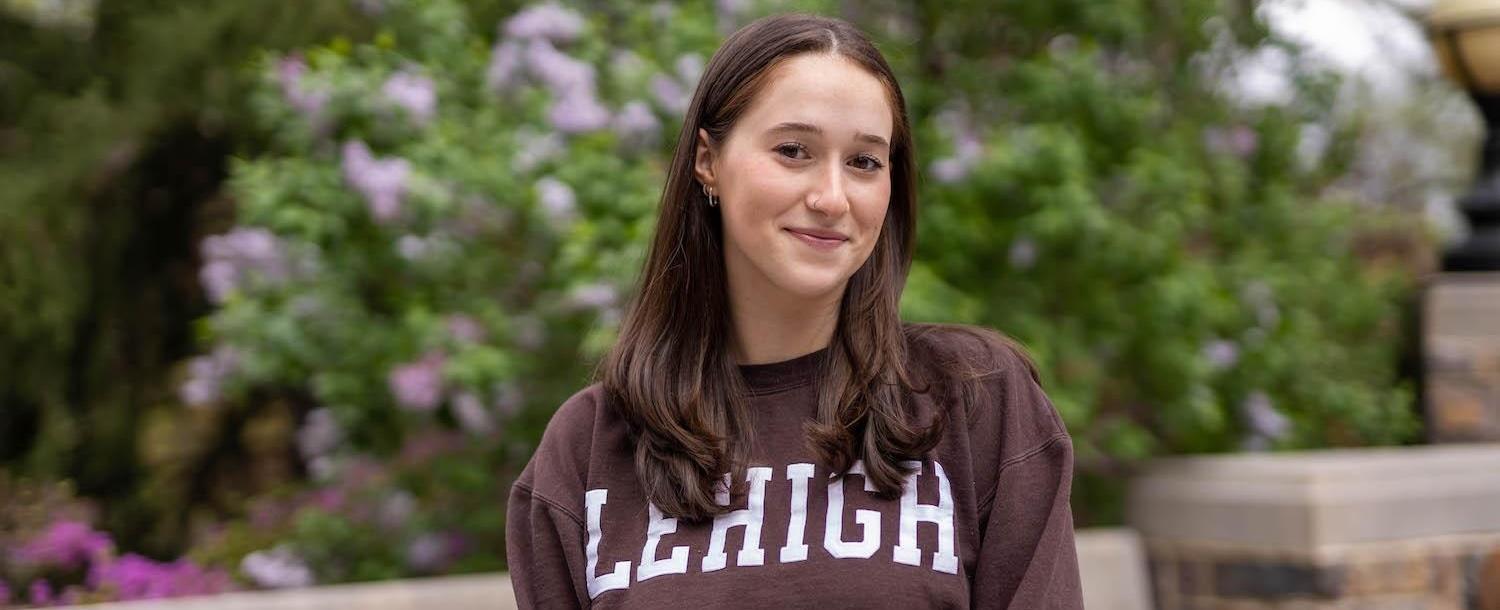Q: What is one thing you would want a prospective student to know about Lehigh?
A: Lehigh encourages academic exploration. Many students do not have to have a clear idea of what they want to study before they get here. Choosing a major can happen once students are on campus, and even then, students are empowered to change their minds. In fact, it’s really easy to switch majors, and I speak from experience! One of the reasons that changing majors was so simple for me is that Lehigh’s staff is so approachable and accessible. Advisors are always available to help students think through their academic interests and schedules. Lehigh also offers a number of resources on campus such as the Career Center and the Advising Center that encourage students to explore various fields of study before deciding on a major. This consistent flexibility is one of the best things about Lehigh!
Q: How has Lehigh prepared you to take on tomorrow’s challenges?
A: Many upper-level courses focus on collaborative projects, and small class sizes make discussion-based learning possible. These intimate academic environments, in many ways, mimic workplace environments. Lehigh has fostered my critical thinking, communication, and problem-solving skills, all of which are preparing me for whatever my future holds.
Q: You started your first semester at Lehigh during the start of Covid-19. How was your experience navigating all of the huge changes that came with the pandemic and starting university?
A: My first semester was Fall 2020. Only first-year students were permitted on campus and every student had to live in a single room - no roommates allowed. All of my classes were online. It was really challenging to meet people. While I could get to know students in my dorm, I had to take advantage of virtual ways to get involved. The Fall club fair was online and I was able to join several organizations and make friends. I also made friends through study groups. I found that going through sorority recruitment in the Spring was a great way to meet new people. Looking back, the pandemic taught me flexibility; I had to really be creative when it came to finding my footing here.
Q: You are doing research on campus, can you tell us about that and how you connected with the professor(s)?
A: Dr. Almut Hupbach is the professor of PSYC 176: Cognitive Neuroscience, which is a required course for the Behavioral Neuroscience major. Dr. Hupbach talked about her research on memory during one of her first lectures, and I immediately knew I wanted to get involved! I emailed her, and after we met, she offered me the opportunity to join her lab as a Research Assistant. Now, I’m heading into my fifth semester in the Memory Lab! Most recently, we’ve been looking at the crossover between spontaneous trait inference and directed forgetting. Essentially, we are interested in seeing if people are able to edit their first impressions. I’m proud of my contributions to the Memory Lab and I can’t wait to continue my work as a Senior!
Q: What classroom or extracurricular activity at Lehigh helped you determine what you want to pursue in the future?
A: I’m heading into my second year serving as Co-President of the American Medical Student Association (AMSA) and being part of this incredible group of students has definitely affirmed that I want to go into medicine. I’ve been on the executive board since the fall of my first year, and I’m proud of the work we’ve done to build an inclusive and non-competitive pre-health community at Lehigh. From casual information sessions about what being pre-health entails to hearing from local physicians about their journey to becoming doctors, AMSA has been an amazing way to learn more about what a career in healthcare can look like.
Q: How would you recommend first-year students get involved on or off campus?
A: The Club Expo is offered on the first day of classes each semester and it’s the best way to learn about all the activities on campus and get involved. Every organization has a table to learn more about each club and join their mailing lists or group chats. I remember joining a bunch of groups my first year, and I was able to meet a lot of people this way! Many student-run organizations sponsor opportunities for getting involved in the local Bethlehem community, too, and I have found those clubs and programs especially rewarding.
Q: What is your favorite thing about Lehigh?
A: My favorite thing about Lehigh, hands down, is the school spirit. You can really feel the love for this school! Students are proud to learn here, and the faculty are proud to teach here. Lehigh’s alumni network is deeply engaged—I’ve been able to connect with medical students who have gone to Lehigh and their advice has been really helpful. Also, the campus is stunning. The architecture and landscape are beautiful and that makes long days of studying much more enjoyable.
Q: Where is your favorite study spot or place to relax on campus?
A: I really love the Science, Technology, Environment & Policy Studies (STEPS) building! It’s an underrated study spot, so it’s usually pretty easy to find a free table or room to study in with friends. It’s in a convenient location to where my classes are—it’s right in between FML and Packard. The balconies are a really nice place to sit when it’s warm out.


